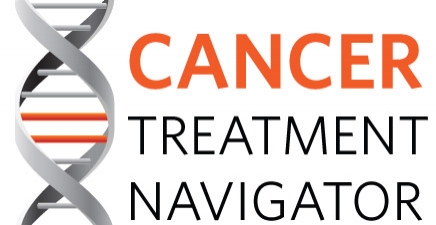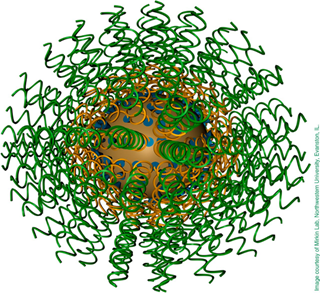Glioblastoma’s unfavorable prognosis is largely due to the high possibility of recurrence combined with limited approved treatments. Several clinical trials with new treatment approaches for recurrent glioblastoma are running at a variety of cancer treatment hospitals, academic and government institutions. They offer hope but create a tough landscape to navigate for patients and caregivers. Some therapies are acknowledged more in popular press while shadowing others with hidden potential.
To this end, the Cancer Treatment Navigator (CTN) team would like to highlight a novel treatment currently in clinical trials for recurrent glioblastoma. It was brought to our attention via an interview with Dr. Priya Kumthekar, MD and Dr. Alexander Stegh, Ph.D. at Northwestern University Feinberg School of Medicine, published last month in OncoTherapy Network. It is called NU-0129 and is a so-called nano-particle. That means super small. NU-0129’s super small size and shape allows it to successfully reach the site of the tumor in the brain. Once there, it interferes with the cancer cell’s biology and stops its growth which essentially can kill the cancer cells. Researchers at Northwestern University are evaluating this drug for its tolerability and ability to get directly to the brain tumor for maximum effectiveness.
On a practical level, rapid advancement in clinical science for cancer treatment has left oncologists strapped for time and resources. Especially when research is required beyond standard hospital protocols for treating most patients. When a clinical trial is considered, very often the clinical trial run by a patient’s hospital ends up being recommended as the best course of action. But that doesn’t mean it is the best choice based on comprehensive research and consideration of all trials running throughout the country. Consequently, one of our main objectives at CTN is to help cancer patients gain access to promising clinical trials based on thorough research and evaluation of published data and compared to the diagnosis, treatment history and specific cancer type of each individual client. Another hurdle that we help overcome is the unnecessarily restrictive eligibility criteria for trial enrollment. Often patients are turned away because many trials only pre-select for very healthy cancer patients to participate. This is done to minimize side effects that might be blamed on the study drug. However, cancer patients are often not healthy, but they still deserve the right to make their own decision about added potential health risks from an experimental medicine. We share the belief with many experts in the field that clinical trials should be for a patient’s welfare and not only for the benefit of a hospital or an individual company’s new blockbuster drug.

